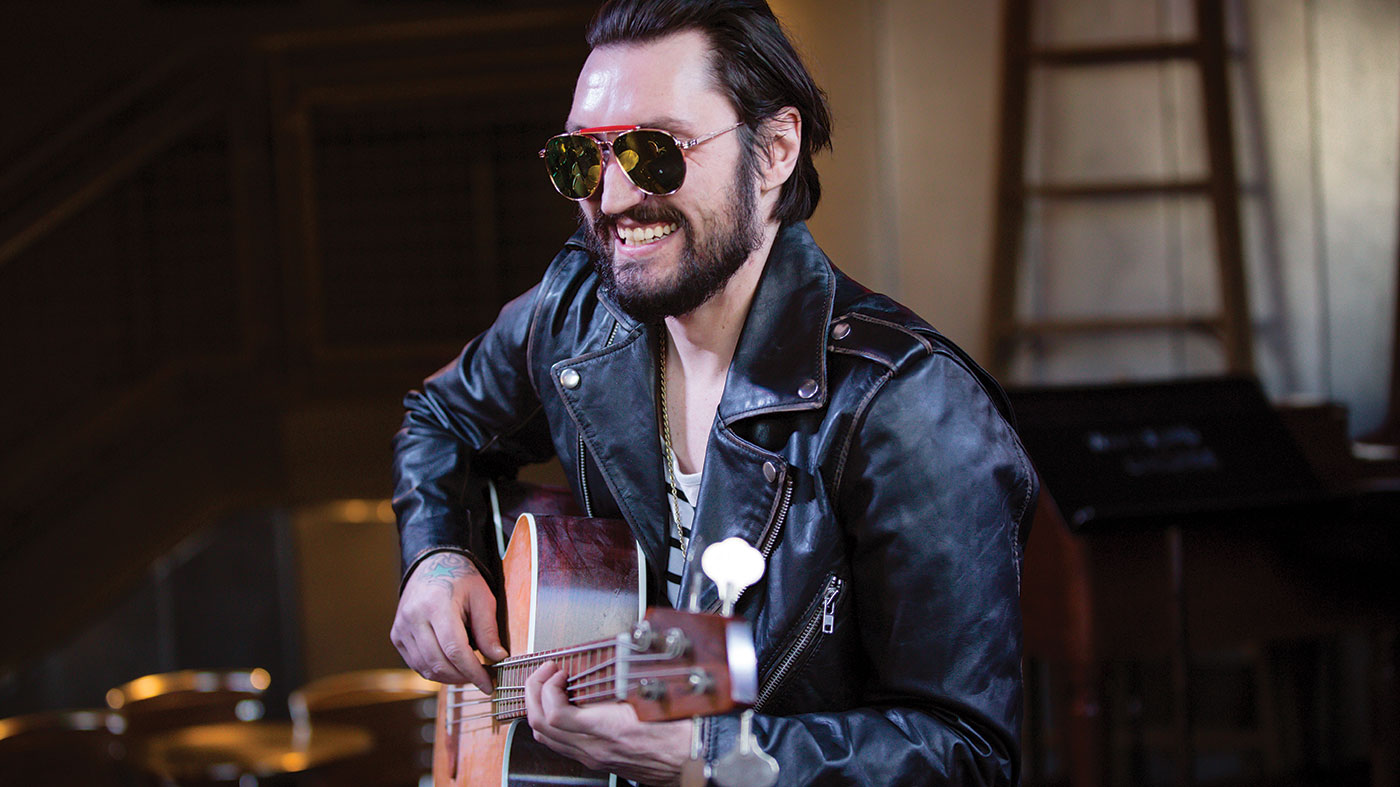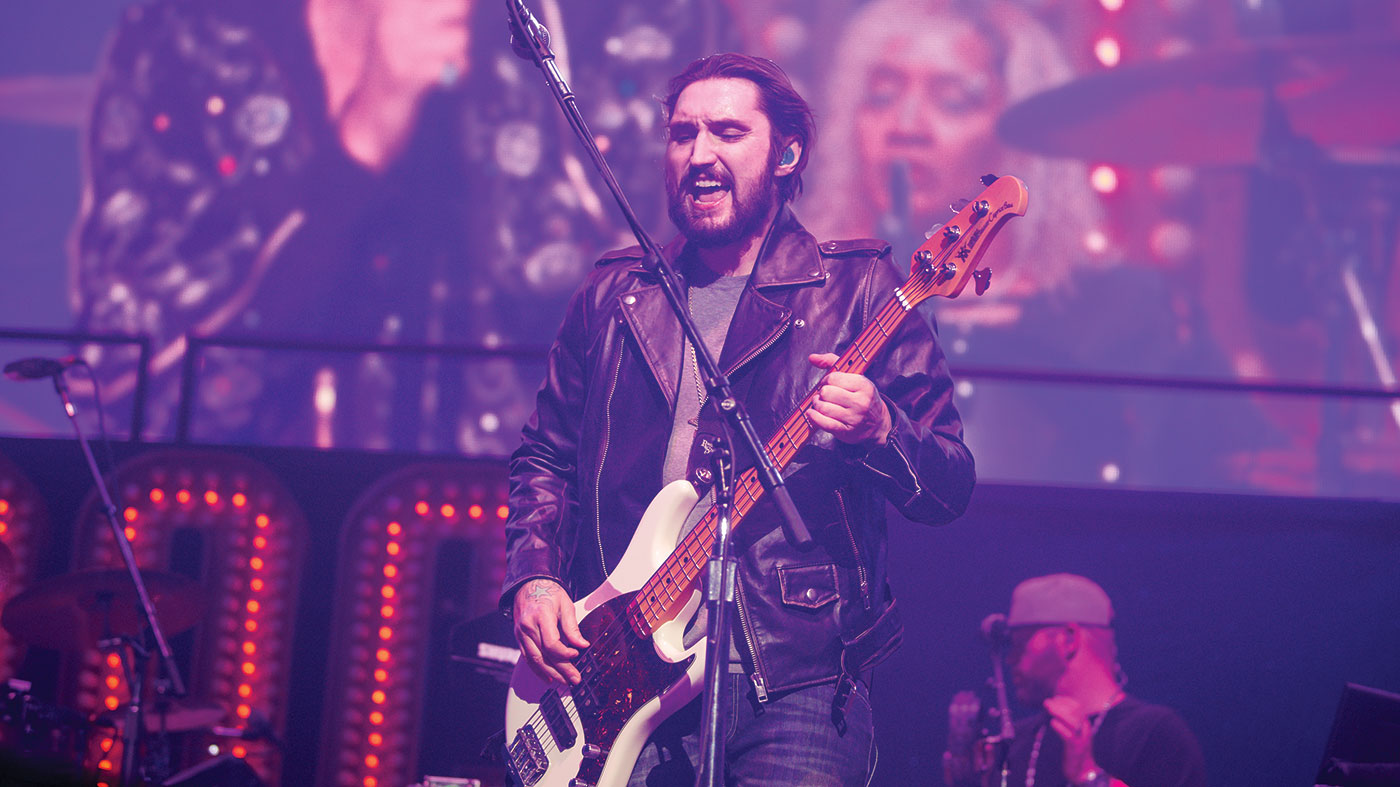Aaron Julison: “I grew up playing in church. I tell you, that was the best teaching I could ever get”
The Kid Rock and Twisted Brown Trucker Band bassist reflects

There is no shortage of superlatives, explosions or expletives at a Kid Rock concert, as his Twisted Brown Trucker Band blasts through two hell-raising hours of classic rock, hip-hop, country, metal & Motown soul. We slip on stage after the show to explore the genre-busting rig of Bob ‘Kid Rock’ Ritchie’s bad-ass boy wonder bassist, Aaron Julison.
Where’s your pedalboard, Aaron?
“Oh, I don’t have one.”
You just went from hard country on Picture to Bawitdaba to Gimme Some Lovin’ - how do you change your tone to fit the song?
The accuracy you need for a fretless brought a lot to my bass game, I think
“Just with my hands. The way I hold my fingers against the strings, and how I position them to the pickup. Some players strike down, others strike up. To get that rounder tone it’s more like a roll-off and letting the note ring. Sometimes I’ll use a pick or change settings on the gear, but that’s about it. Every player’s sound is the sum of all those nuances coming together to make something unique.”
How did you get started on bass?
“My parents were pastors down in Florida, so I grew up playing in church. There were some older black guys that had done a lot of gospel sessions, and they took me under their wing. I tell you, that was the best teaching I could ever get, learning to feel where the music is going, four bars before it gets there. It’s part theory, part heart. A lot of country, rock and R&B came out of gospel, y’know.”
Want all the hottest music and gear news, reviews, deals, features and more, direct to your inbox? Sign up here.
Elvis, Cash, James Brown, Little Richard, Sam Cooke.
“Exactly. It provided me a good background to work with Bob. I was 14, maybe. The first bass I ever had was a Fender Jazz fretless. I found it at a garage sale, cheap. The accuracy you need for a fretless brought a lot to my bass game, I think. I finally got an Epiphone Viola and plugged it into a classic Ampeg and then at 16 I moved to Nashville. I had to learn the number system because I was getting session work pretty quick.”

Kidding me
How’d you manage to land the gig with Kid Rock?
“His manager saw me playing and asked if I’d do some studio stuff. After the session, Bob said, ‘Hey, I got a show coming up. C’mon, you can stay with me’. So I moved in with him and went on the road. Once I was in Detroit, I got into Motown and old soul. ‘Duck’ Dunn, James Jamerson, those guys are my heroes. A friend of mine recently bought one of Jamerson’s old basses and he was like, ‘It was all dirty, so I cleaned it up’. No! That was the magic. That was the funk. Those old guys, sometimes they wouldn’t even change strings.”
You’re not just a touring bassist, you play on the records. What do you use in the studio?
I have some old P-Basses I use, the main one being a ’71. And I’m having a Tele bass rebuilt with vintage humbuckers
“Our engineer found the guy who made the original Motown bass DI’s, bought the plans and remade them under the Acme name. Those are awesome. I have some old P-Basses I use, the main one being a ’71. And I’m having a Tele bass rebuilt with vintage humbuckers.”
Ever play a five?
“Nah, I’ll use a Hipshot.”
What’s your stage setup?
“Music Man made me a custom Cutlass. I love how light they are because I’m jumping around so much. For amps, I’ve got an Ashdown ABM-1200, an 8x10 cab and two classic 4x10s on each side of the stage so it spreads evenly.”
You guys play an amazingly diverse set.
“I know, right? We did this revue show where Dickey Betts [of the Allman Brothers] came out for ‘Rambling Man’ and then we did 15 minutes of Run-DMC with Rev Run. Then Peter Wolf sat in for some J. Geils Band. So yeah, we’ve done it all, from the White’s Creek fish fry to the Super Bowl.”
What’s the secret to making it all flow?
“Bob takes a very rootsy approach, even to hiphop, and he’s got 20 years of music to draw on now. We have a good time, man. I feel really fortunate to be in such a good band with good people. We’re family.”

